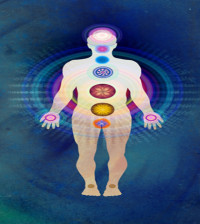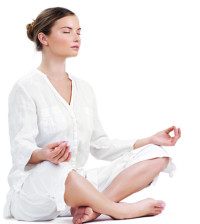- 5 Tips To Finding Peace Within Yourself
- The Do’s and Don’ts of Learning How to Accept Yourself
- How to Find Your Inner Peace and Transform Your Life
- 8 Benefits of Having an Open Mind and How to Get One
- Learn How To Be A Happier Person
- What Is The Meaning Of Life?
- Laws of Abundance – The Riches of Love and Joy
- How to Be Laid Back By Following These 9 Simple Strategies
- The meaning of confucius’ golden rule – 4 practical ways of living it
- 3 methods of unleashing the power of contentment in your life
How to Deal with Depression and Anxiety in 3 Most Powerful Steps

Most psychologists agree that there is one basic difference between depression and anxiety. Depression is often, based on its manifestations, a kind of shutting down, the individual drowning in a sense of hopelessness and despair from which there seems to be no way out. Anxiety, on the other hand, is more like an anticipation for the future—a negative one at that. With anxiety, the person irrationally anticipates that something bad is going to happen—whether it’s happening later today, tomorrow, or in some unknown time in the far future does not matter. Despite this difference, however, the important aim is how to deal with depression and anxiety. And with the following tips, you’ll see how to overcome this double-teaming scourge.
1. Establish, maintain and treasure good interpersonal relationships
There is a popular saying around the office: when you’re depressed, make sure you’re not merely surrounded by bad people. Quite often, we feel bad because someone has let us down. And because we usually spend our days in a blur, it does not take long for us to forget the cause of our sadness and for such sadness to persist because it stays unresolved. So by having good personal relationships, you are simply protected from the ravages of personal hurt. Whenever you’re wondering about how to deal with depression and anxiety, always remember to start with the person that is closest to you: your spouse, sister, parent, or best friend. By surrounding yourself with people who care about you and protect you—loved ones, relatives, close friends—you will be emotionally insulated from anything that might cause depression or anxiety. You can also cultivate personal relationships beyond the usual scope of family—for example, by taking part in your local volunteer group that helps the needy, or by joining the discussions of a support group. Anything that allows you to reach out to others and to share the burden, take it.
2. Search deep within yourself for strength and reassurance
Spend a few minutes each day alone in meditation. You can perform the simplest form of meditation—breathing deeply and slowly for a few minutes, focusing only on your breathing and thinking of nothing else—in a quiet spot in your bedroom. Meditation calms the mind and reassures the spirit that everything is and will be alright. And it has a scientific basis, too—countless studies have shown that regular meditation can change or improve the physical structure of the human brain, in the same way our biceps become more defined and muscular when we work out. Not only that, but meditation can also boost the production of many of our natural “feel good” hormones, such as melatonin, GABA and DHEA. So when you’re depressed or anxious, you can eat chocolate, or you can just meditate. The latter is more effective.
3. Spring into action
Yes, when we’re depressed doing something, anything at all, is the last thing that would be on our minds. In fact, many depressed people spend the entire day (even several days) in bed, doing nothing. It’s a classic catch-22 situation: you feel lethargic because you’re depressed, and you’re depressed because you’re lethargic. But we can’t emphasize the importance of springing into action more, simply because it is one of the mainstays in any “how to deal with depression and anxiety” list, and for a good reason: physical activity encourages your body to produce certain feel-good hormones that can quickly lift up your spirit. Fitness gurus have a name for it: “runners’ high.” You don’t have to bring out the big guns and enroll in some expensive gym—you can start with the smallest of things, such as going out that door and walking around the neighborhood.








































You must be logged in to post a comment Login